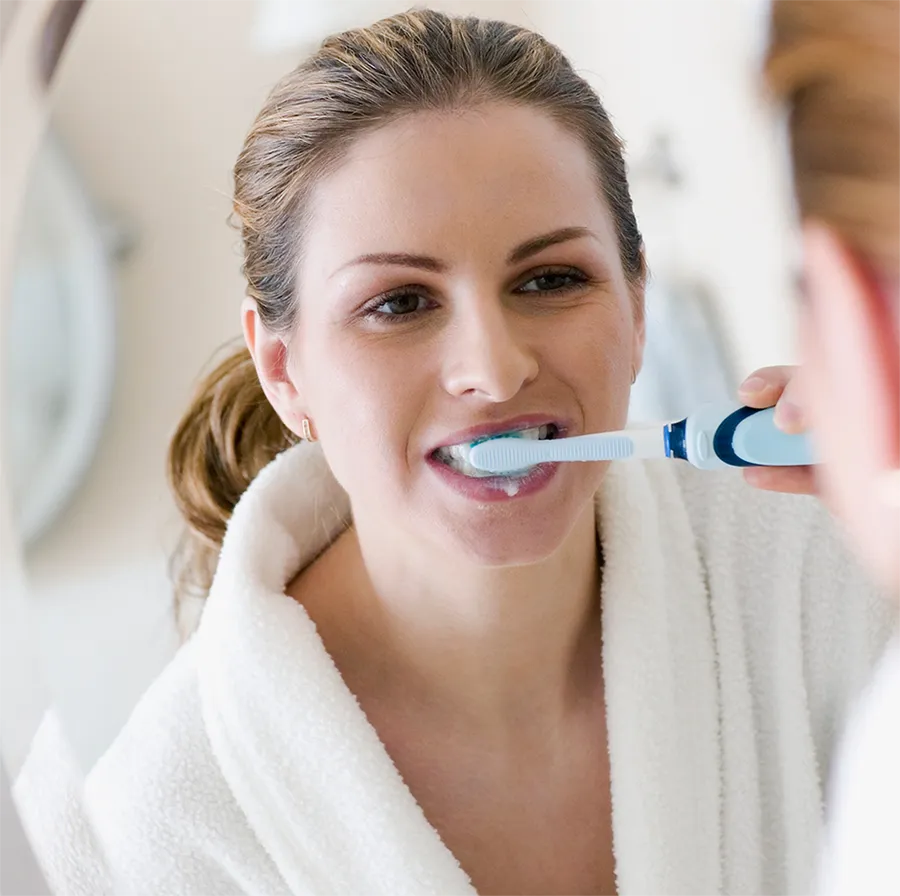It is possible to become sick by using a germy toothbrush. According to researchers at the University of Birmingham School of Dentistry, there can be as many as 1.2 million bacteria on a single toothbrush. They have found the flu virus, staph bacteria, E. coli, yeast fungus and strep virus hanging out on used toothbrushes. Toothbrushes have the ability to be infected by a wide range of microorganisms, including viruses which can cause the common cold to even herpes. Pneumonia-causing bacteria also are found on a toothbrush. The germ problem lies in how and where we store our toothbrushes. Bathrooms are the perfect place for bacteria to grow — they are moist and steamy. In addition, most toothbrushes sit next to the toilet.
However, with the help of our immune system and everyday good hygiene habits, it is unlikely that your toothbrush will make you sick. But, there is still a chance for these bacteria to break through our defences.
To avoid a germy toothbrush, put these helpful tips into practice:
- Wash your hands before and after brushing.
- Change your toothbrush every three months or whenever you have the flu or a cold. You should also change when the bristles become worn.
- Alternate between two brushes to make sure you use a completely dry brush.
- Store your brush away from the toilet, and close the lid before flushing.
- Do not share brushes and avoid storing toothbrushes together. Even storing your toothbrush too close to someone else’s is unwise because bacteria can jump from one brush to another.
- Rinse your toothbrush thoroughly after every brush with hot water. Small amounts of food can remain in the bristles, and if they’re not removed, they can spoil and cause gastrointestinal problems. For a more effective rinse, submerge your brush in hydrogen peroxide or alcohol-based mouthwash.
- Let your brush air-dry before putting a cap on the head or storing it away.
- Use a different tube of toothpaste if you or someone else in your family is sick.
- If you have severe oral or systemic diseases and those undergoing cancer chemotherapy, cardiac surgery, or organ transplantation should change toothbrushes more frequently.

